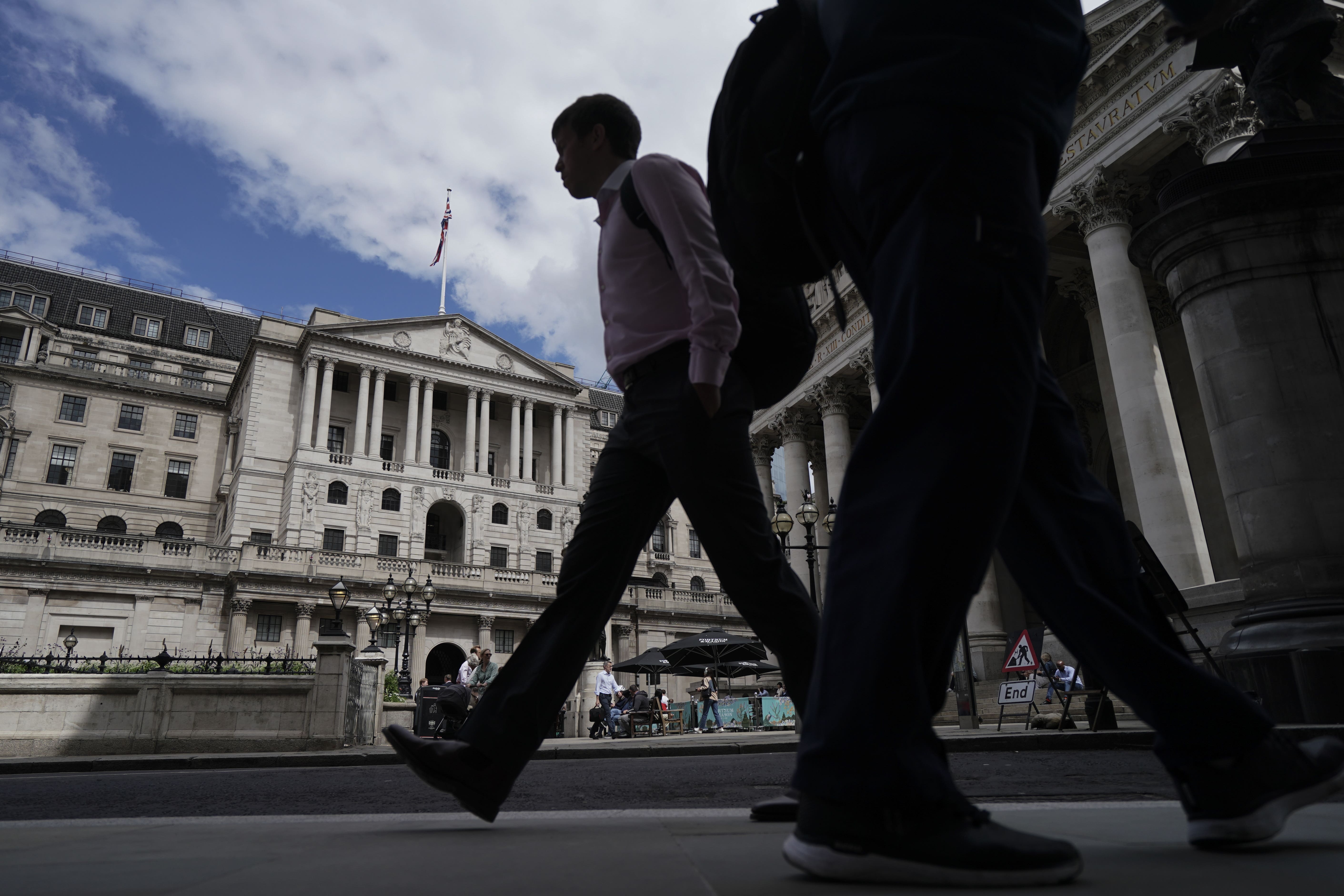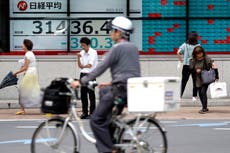Cork the champagne: the UK’s inflation problem is even worse than we thought
Jeremy Hunt may have raised a celebratory glass to yesterday’s drop in the rate of inflation. But don’t be fooled: things will get a whole lot worse unless Rishi Sunak gets tough, and the Bank of England gets tougher, writes Chris Blackhurst


There is good news and bad news in yesterday’s inflation figures.
Headline inflation has dropped, due to lower gas and electricity prices. That’s the positive part. But remove food and energy prices, and core inflation rose at an unchanged annual rate of 6.9 per cent. Services prices increased at an even faster pace. There’s the negative.
What this points to is that Britain is failing to get to grips with inflation, which is resolutely sticking. Yes, food is down but this is the result of a crackdown on “greedflation”, ie supermarkets raising their prices under the umbrella of inflation. Media and political pressure have forced them to make reductions.
Falling energy bills follow the lowering of the Ofgem price cap, rather than any broader easing of price pressures.
Economists were predicting a fall in prices of core goods from 6.9 per cent to 6.8 per cent – not much, but a move in the right direction, nevertheless. It failed to materialise.
Worrying, too, was that services prices, regarded as the best litmus of underlying domestic inflation, climbed 0.8 per cent in July.
What does this mean? That Britain’s inflation is a more entrenched problem than previously thought. Until now, it was widely supposed that higher wholesale gas and electricity prices were responsible. But they fell and prices continued their upward trajectory.
Alarming, as well, is that fuel was an international issue, provoked by Russia’s invasion of Ukraine. Ministers were happily saying that if we brought down energy costs then we would be back on track.
That has not occurred. Instead, these figures are indicating that Britain has an inflation issue all its own.
Wages are going up; the government seems to be conceding to some public sector demands in return for industrial harmony. But their desire to avoid strikes, in schools and the NHS, is only contributing to a grim picture of an economy that is not moving forward and, so far, cannot be turned.
Try telling that to Rishi Sunak and his colleagues, though. He pledged to halve the inflation rate this year, so the chancellor Jeremy Hunt hailed the fall in the headline figure of 6.8 per cent as proof of progress. Yes sir, but while gas, electricity and even food may be cheaper, elsewhere prices are rising ever higher.
Still, there is a promise to be met and Sunak has put his party on election footing, so they will stick to the good stuff, while resolutely ignoring the bad. The problem for the Tories, though, is that while improvements in energy and food have taken place, and there’s probably no more slack to be cut, attempts to curb price rises in other areas are going nowhere. That means he may not match his pledge after all – the jury is very much out on that one – and that could prove embarrassing; doubly so as the national ballot looms.
On the back of this, interest rates are likely to rise again when the Bank of England’s Monetary Policy Committee meets in September. That will be the 15th consecutive increase, and they’re already at a 15-year high after this month’s extra 0.25 per cent.
Sunak and co are going to have a lot of explaining to do, as their core, homeowning, mortgage-holders – many of them younger families that they must woo – suffer yet more pain.
It’s an intriguing prospect: boasting about achieving a promise while the nation endures a torrid time. How Sunak will square that one should be fascinating.
He is hoping, of course, that prices outside energy and food do come down, and with them, interest rates. In the US, they’re pointing to rates falling in the middle of next year. But what these latest figures show is that we cannot be so optimistic, and that our economy is in poorer shape than theirs. That’s not a cheery outlook as we head towards a probable general election year.
Somehow, we need to break out of a spiral which is seeing the prices of many goods and services climb and mortgages also going up, followed by pay requests that, if met, push the prices and mortgage bills still higher.
We’re not there yet, and display no suggestion of being anywhere near it. Sunak must get tough; the Bank must get tougher.
It’s good and bad. No one wants to be Eeyore but the bad outweighs the good, and that’s where the focus of the government and Bank should lie.
Join our commenting forum
Join thought-provoking conversations, follow other Independent readers and see their replies
Comments


Bookmark popover
Removed from bookmarks